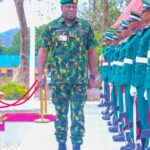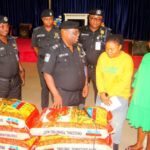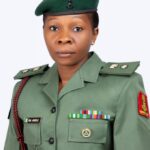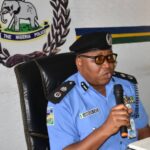A total of 4,982 Nigerians that had sought refuge in Cameroon in the wake of insurgency are set to return home.
The National Commission for Refugees, Migrants and Internally Displaced Persons (NCFRMI) has begun moves to that effect.
Of that number, a total of 3,224 refugees are returning to Banki town and the other 1,758 to Bama town, both in Borno State.
The Federal Commissioner of NCFRMI, Sen. Basheer Garba Mohammed, at the weekend, met with the officials of the Cameroonian Government and the United Nations High Commissioner for Refugees (UNHCR), in Maroua, Cameroon, to discuss modalities for their return home.
The development came on the heels of President Muhammadu Buhari’s recent directive that all Nigerian refugees in Cameroon be brought back home safely to a life of dignity and pride with immediate effect.
The weekend’s meeting which was a follow-up to the previous one in 2017, initiated by the then commissioner and current Minister of Humanitarian Affairs, Disaster Management and Social Development, Hajiya Sadiya Umar Farouk, also led to the successful return of 134 Nigerians from Cameroon.
The Minister, speaking on the development, assured that necessary arrangements had been made for the refugees’ socio-economic reinsertion into Nigeria.
Speaking at the meeting, the commissioner, who was represented by the Commission’s Director of Refugee and Migration, Tai Hassan Ejibunu, stressed the importance of the meeting of the Technical Working Groups (TWGs) of both countries.
According to him, the voluntary repatriation of Nigerian refugees in Cameroon and the suppport of the humanitarian ministry cannot be overemphasised.
The Commission’s Federal Commissioner, who is also the Chairman, Technical Working Group (TWG) of Nigeria on the Voluntary Repatriation of Nigerian Refugees, said “The TWGs’ meeting was a forerunner to the Tripartite Commission (TC) meeting scheduled to hold this week.
”The meeting this week would provide the latitude and platform for officials of both counties to have in-depth discussions on the protocols and strategies to follow in repatriating the several thousands of Nigerian Refugees that are stationed in Minawao Camp in the Republic of Cameroon.
“Therefore, I would urge officials of both countries to be open in their discussions, while putting into consideration, the interest of the refugees, following international best practices and the guidance of our technical partner, the United Nations High Commissioner for Refugees (UNHCR) Offices, both in Nigeria and Cameroon.
“At this juncture, let me take this opportunity, to thank the UNHCR Country Representative in Nigeria, Ms. Chansa Kapaya, and her dedicated staff for their invaluable contribution, assistance and collaboration in all spheres, to ensure that discussions were held always, on how best to tackle the repatriation of these Persons of Concerns (PoCs) to Nigeria.
“The Governor of Borno State, Professor Babagana Umara Zulum, is a governor that has demonstrated uncommon passion in ensuring that the citizens of his State in Cameroon are repatriated home in safety and given a new lease of life.
“Zulum’s reintegration plans for the PoCs, if well executed, and with support of the relevant stakeholders and partners will assuage the losses and fears being entertained by the refugees upon their return home back in Borno State ” Lado said.
He thanked the government and people of Cameroon for their show of love and hospitality to the Nigerian refugees.
“The Government and the country have exemplified the true African spirit, character and culture of good neighborliness, and being fellow African brother’s keeper. The country’s acceptance to host the Joint TWG is a further attestation of the spirit of umbuntu “You Live, So I Live” which is engrained in the psyche and the blood streams of Africans”, he concluded.
The return of the refugees would also be in line with the Commission’s on going resettlement cities project, which would shelter thousands of displaced persons in a two-bedroom housing units across some states, consisting of primary health care and education centres, security outposts, worship houses, skill acquisition centres, markets and adjoining farmlands for use by the occupants.
The Commission’s Project Reliance is another programme aimed at providing a stable means of livelihoood for the returnee refugees, empowering them by way of giving them start-up capitals and empowerment tools in more than 50 different vocations and businesses of their choices.
Other stakeholders in the humanitarian space on the exercise are; the representatives of the governors of Borno and Adamawa states, representatives of the ministers of humanitarian affairs, foreign affairs, health, finance, interior and budget and national planning.
Others are the representatives of the NSA NIA, DSS, Police IG, Chief of Defence Staff, Civil Defence, Immigration, NAPTIP, NEDC and NEMA.







